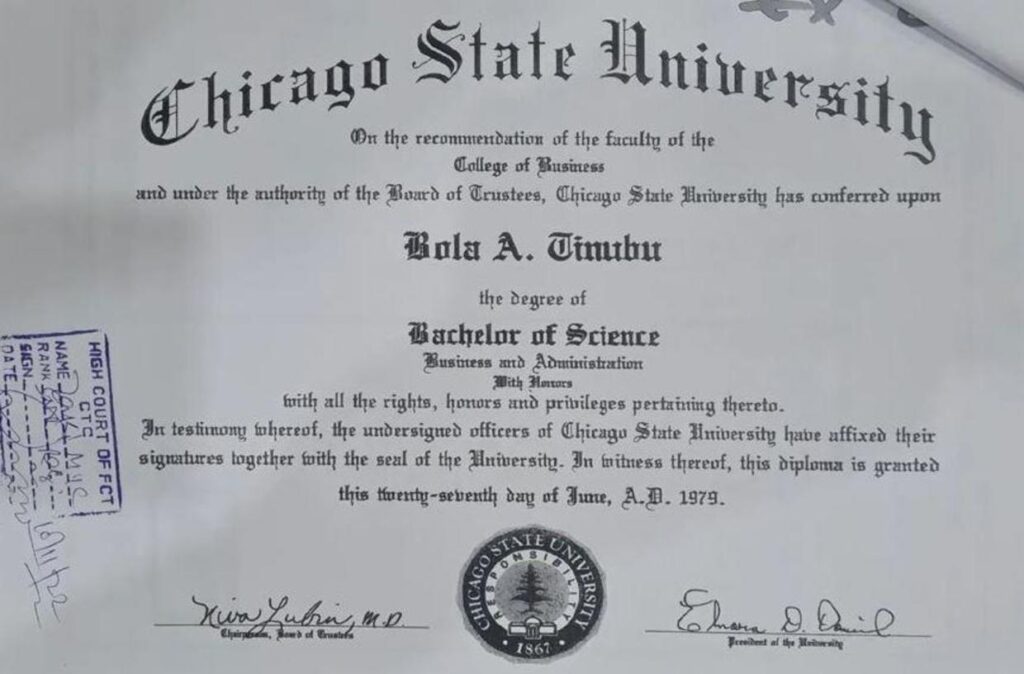CURRENT REPORT BLOG in a significant legal victory, Atiku Abubakar’s lawyers have emerged triumphant in the case of Atiku v. Chicago State University/Tinubu Victoria Ascerta. This legal battle has shed light on the intricacies of international legal procedures and the pursuit of justice.
The Background
Atiku Abubakar, a prominent Nigerian politician, sought access to academic records belonging to Bola Tinubu, also known as BAT, as part of an ongoing legal dispute in Nigeria. This case involved several key requirements, including residency, usability, and locus, which were fiercely contested by the Intervenor BAT and the Injustice League.
The Legal Arguments
BAT’s legal team argued that the discovery sought by Atiku was not relevant to the Nigerian proceedings and that the Supreme Court could not consider new evidence. Atiku’s counsel countered, citing “exceptional circumstances” under the Nigerian Electoral Act of 2022 as a basis for the requested discovery.

The Court’s Ruling
The court ruled in favor of Atiku Abubakar’s legal team, emphasizing that admissibility was not a determining factor. Instead, the focus was on whether the requested information would be “for use” in the proceeding and if Atiku had the practical means to employ the information to his advantage.
The court also rejected the argument that Atiku was not an interested party, acknowledging that even though the issue was introduced late, Atiku qualified as an interested party.
The court reviewed Atiku’s narrowed document requests, focusing on BAT’s CSU diplomas and related documents, as well as the deposition under oath. This deposition aimed to clarify various aspects, including the authenticity of documents, CSU’s role, and the circumstances surrounding the issuance of certain documents.

Privacy Concerns
BAT’s lawyers raised privacy concerns regarding educational records, but the court clarified that the Family Educational Rights and Privacy Act (FERPA) did not create an independent privilege. Disclosure was permitted if it complied with a lawfully issued subpoena or judicial order, and Atiku’s interest in obtaining BAT’s records outweighed privacy rights due to BAT’s submission of the diploma to INEC and related documents.
Burden on CSU
BAT’s lawyers argued that the discovery would burden CSU, but the court held that they lacked standing to make that claim. The court also overruled CSU’s preference for written deposition, emphasizing the need for an oral deposition to obtain information effectively.
The Court’s Orders
In a decisive ruling, the court ordered Chicago State University to release all relevant documents within 48 hours. It also mandated that the deposition take place immediately after the document release and instructed CSU to work on weekends if necessary.












